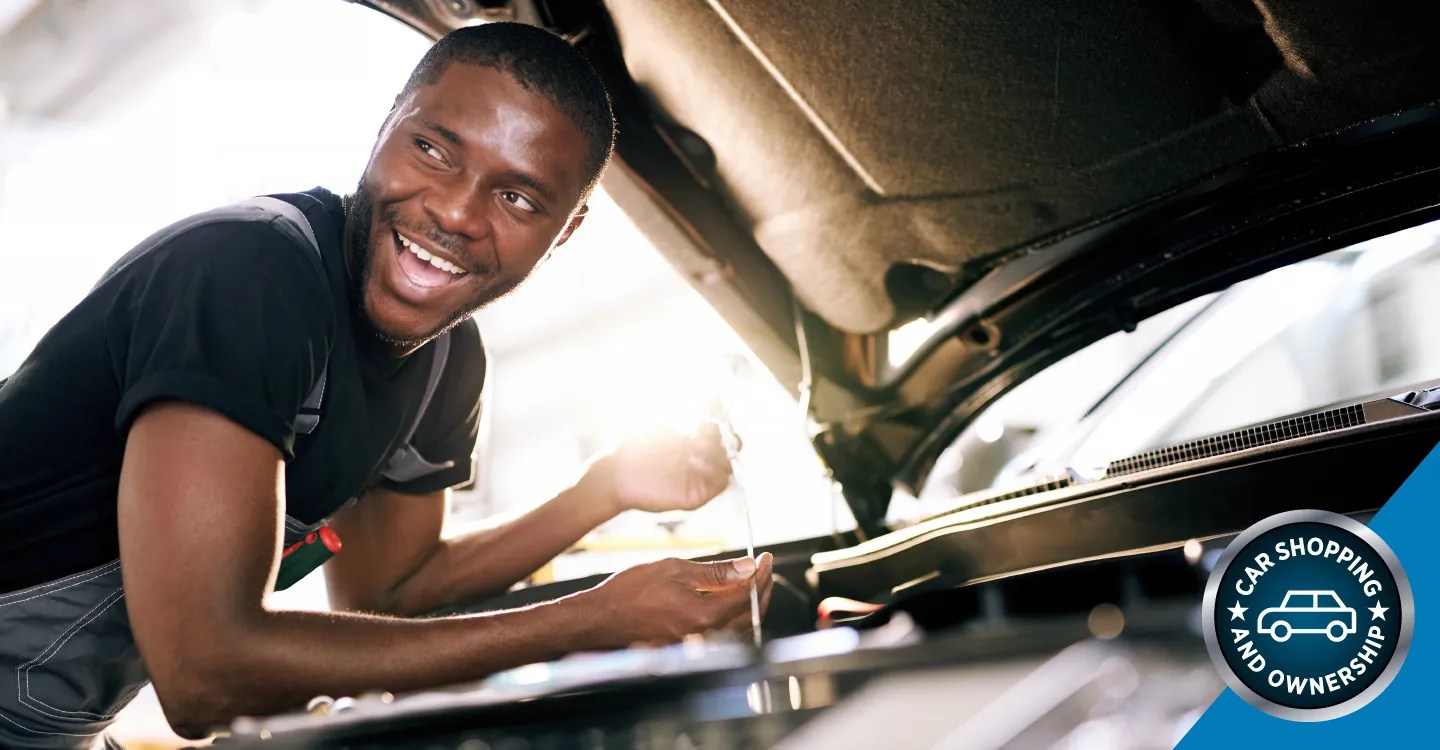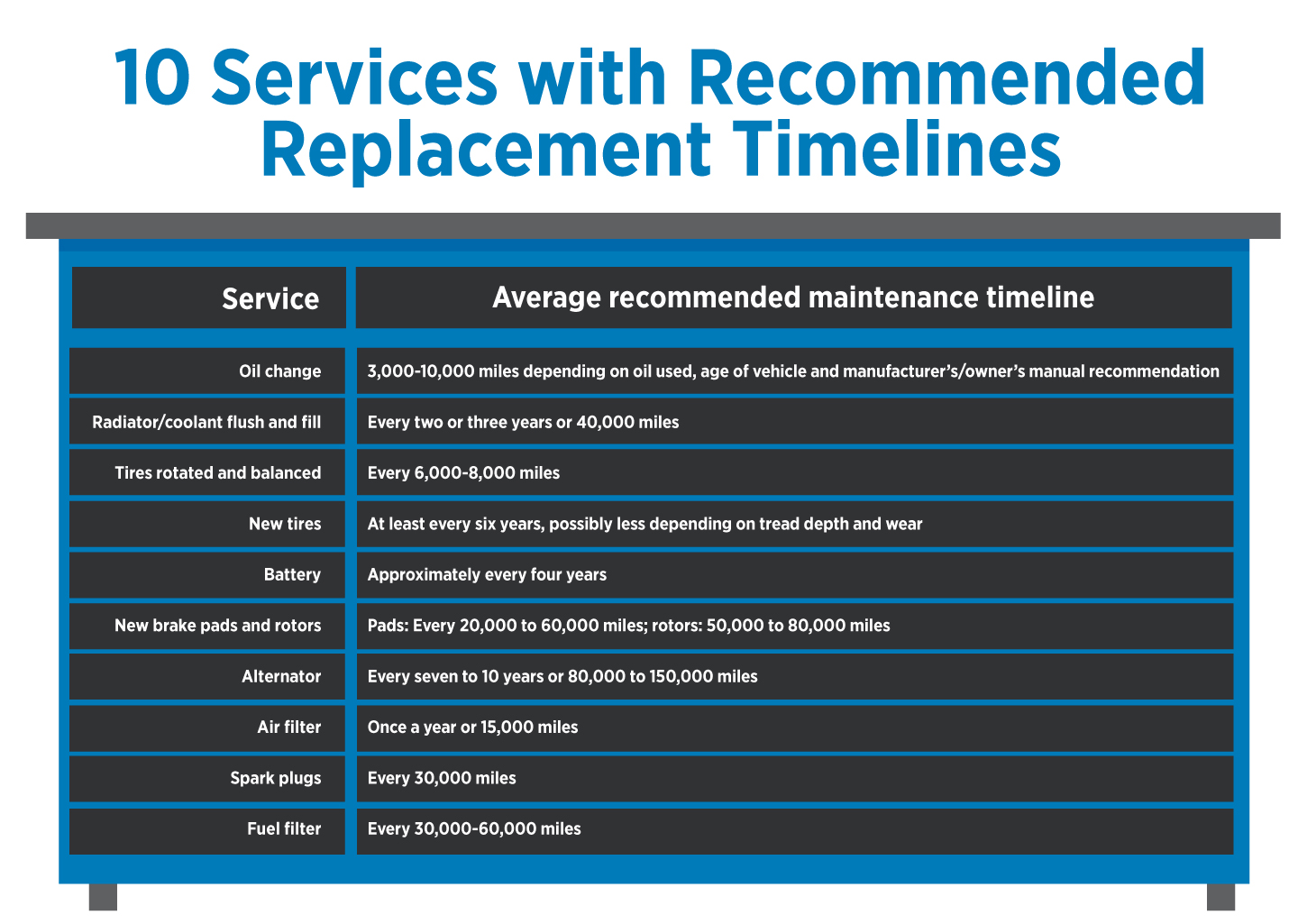Whether you’re a first-time buyer, or someone who has retired many vehicles over the years, you probably know that acquiring a new ride is just one step in the life of car ownership.

Driving off the lot and into the years ahead, part of your “job” as auto owner is making sure you keep your vehicle in optimum running condition. Not to mention avoiding any warning light surprises from your vehicle dash.
Yep, we’re talking about being an accountable car owner. But why exactly is getting maintenance performed important? Hop in, let’s discuss.
Performance
While you may not be driving in a NASCAR or Formula 1 race, you still want to keep the performance of your vehicle top notch. Navigating carpool lanes can be just as challenging and call for your engine to deal with frequent long periods of idling, putting stress on your car. Not to mention the driver.
If you’re like most people, you probably follow the age-old advice handed down for generations and begrudgingly make regular trips to have your vehicle’s oil changed every 3,000-3,500 miles. If you’re a rebel, you might push it to 4,000 miles. But in the newest automobiles, is this necessary?
Modern technology, more efficient engines powering today’s vehicles and increase in synthetic oil usage has led to a longer time recommended between oil changes. Depending on the oil you use, mileage on your odometer and vehicle owner’s manual or manufacturer’s recommended mileage/intervals, it’s still a good idea to get an oil change between every 3,000 and 10,000 miles.
To avoid engine overheating, have your cooling system checked at least once every two years. It may need a good flush or added coolant (antifreeze) to keep running at maximum performance. Also have radiator hoses and cap inspected regularly for wear and tear.
In addition to oil and coolant, there are other types of fluids – transmission, brake, power steering, windshield wiper – that can impact your enjoyment behind the wheel. Better to have them assessed by a certified technician and top off than to have drop off while you’re driving.
Fuel economy
We’ve all felt the pain at the pump lately. And maintaining your vehicle can help get your car further down the road on a tank of gas.
A smooth-running engine uses gas more efficiently. If you’re driving and your check engine light comes on or you hear strange sounds coming from the engine, or elsewhere, pull in and have it looked at immediately. What you pay to have it fixed, say a failed oxygen sensor, could save you in the overall life of the vehicle and in the pocketbook.
Whether you get a warning light on your dash or not, check the pressure of all four tires frequently.
Keep your tires inflated to the specifications found inside the driver’s door of your vehicle or in the owner’s manual. Having underinflated tires makes the car work harder to propel itself forward, thus using more gas.
A dirty air filter can also impact fuel economy by decreasing gas mileage or reducing power and pick-up. Best to check the filter with every oil change to make sure all is flowing smoothly and cleanly.
Reliability
If you’ve ever gotten in the car, possibly running late to an appointment, only to find the car won’t start, you’re not alone. Things like dead batteries and a busted alternator can turn your vehicle from old faithful into oh no!
Mechanics can check the power of your battery easily using a voltmeter and can inspect your alternator to make sure it is good to go as well.
Another main car component you rely on are your brakes. Squeaking or grinding noises can be a sign your brake pads are wearing thin. Not only can this keep your car from stopping as you intend, but it could lead to not stopping at all. Have your brakes inspected once a year to make sure you have optimum control of being able to stop.
Resale value
No matter how long you plan on keeping your vehicle, having regular maintenance performed and taking good care of it can go a long way when it comes time to sell. And getting the most money for it.
It may seem like common sense, but routinely cleaning and detailing your vehicle over the time you have it goes a long way to when it comes time to resell. Limiting door dings and paint chips, holes in seats and carpeting and scratches or cracks on the dashboard and steering wheel can mean the difference in the amount the car is worth.
Also keep your own records of all maintenance you’ve had done on the vehicle. If you sell to an individual, they’ll want to know the car was taken care of properly, and with documentation, you can show that it was.
Safety
Making sure your vehicle is safe through maintenance is probably the biggest reason to stay on top of it. Tires should be frequently checked for wear and tear and proper pressure. Having little tread left can lead to big safety concerns on a wet or icy road.
Also consider all the many lights (headlights, taillights, blinker lights) that help you keep safe on the road, especially after dark. Examine them often to make sure they are properly illuminating. It’s no fun being informed you have a taillight out by the police officer who pulled you over because of it. Trust us.
Today’s technology has taken most of the guesswork out of vehicle ownership and replaced them with intuitive systems that quickly report when and what maintenance is required. We just have to pay attention to the dashboard notification and warning signs and address the issue quickly.
While the above list isn’t everything you can do for regular scheduled maintenance, it gives you a good overview of the big stuff so you get the most out of your vehicle. Make sure you follow your dealer’s or owner’s guide of recommended maintenance for your specific automobile. It’ll help assure your vehicle’s performance, fuel economy, reliability, resale value and safety are all up to speed for the many roads ahead.

